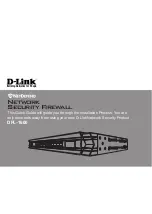
A-19
Cisco Intrusion Detection System Appliance and Module Installation and Configuration Guide Version 4.1
78-15597-02
Appendix A Intrusion Detection System Architecture
System Components
When you configure NAC to block a device, NAC initiates either a Telnet or SSH
connection with the device. The NAC maintains the connection with each device.
After the block is initiated, the NAC pushes a new set of configurations or ACLs
(one for each interface direction) to each controlled device. When a block is
completed, all configurations or ACLs are updated to remove the block.
NAC-Controlled Devices
NAC can control the following devices:
•
Cisco routers running Cisco IOS 11.2 or later
•
Catalyst 5000 with Supervisor Engine software 5.3(1) or later running on the
supervisor engine, and IOS 11.2(9)P or later running on the RSM.
Note
You must have the RSM because blocking is performed on the RSM.
•
Catalyst 6000 with PFC installed running Catalyst software 5.3 or later
•
Catalyst 6000 MSFC2 with Catalyst software 5.4(3) or later and Cisco
IOS 12.1(2)E or later on the MSFC2
NAC Features
NAC has the following features:
•
Communication through Telnet and SSH 1.5 with 3DES (the default) or DES
encryption
Only the protocol specified in the NAC configuration for that device is
attempted. If the connection fails for any reason, NAC attempts to reestablish
it.
•
Preexisting ACLs on routers and VACLs on switches
If a preexisting ACL exists on a router interface/direction that is controlled
by NAC, you can specify that this ACL be merged into the NAC-generated
configuration, either before any blocks by specifying a preblock ACL or after
any blocks by specifying a postblock ACL. The Catalyst 6000 VACL device
types can have a preblock and postblock VACL specified for each interface
Summary of Contents for IDS-4230-FE - Intrusion Detection Sys Fast Ethernet Sensor
Page 4: ......
Page 450: ...Appendix B Troubleshooting ...
















































